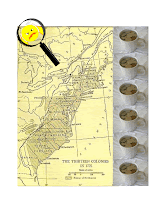Do you ever have doubts about Christianity? Perhaps you wonder how anyone can know – really know – that Christianity is right. It may be that others have asked you, or you have asked Christians, this type of question. People want reasonable answers. So whether you have questions or what to answer a question use this study as a reference; I hope you will find the answers you need.
Who am I? My pastor described himself using a D.T. Niles[1] quote, “…as one beggar telling another beggar where to find the bread.” I like that idea. I’m just another beggar who might be able to give you a little useful information; no one special. More specifically though, my parents raised me to go to church each week where I was provided with plenty of training concerning Holy Scripture. But when I was sixteen, I started working on days when I should have been with fellow believers. It’s not that I went to meetings every now and then, or that I tried other days. I just plain old stopped going to church. Hebrews 10:25 tells us to not stop meeting together, as is the habit of some. But not meeting with fellow believers did in fact become my habit. For me, that habit lasted for many years. While I might have visited a church during that time, I became very good at “just visiting”.
During those years I met many people who didn’t share my beliefs and who seemed to have wonderful claims about their beliefs. Some of them even offered what sounded like reasonable arguments to support their beliefs. What I didn’t know were the reasons that supported Christian beliefs; but while listening to non-Christians and their claims of reason I found it hard to believe that my God expected me to believe everything that I was taught without reason. It was time for me to study.
Over the years I started to list my beliefs and identify my assumptions. I then started to determine what had already been proven, or in some cases, to prove those assumptions myself as best as I could. In some cases, I would start with the facts and see where reasoned thought took me. My arguments were crude. People I spoke with would point out my errors in logic. I was accused of, and actually was, completely ignorant when it came to a working knowledge of reasoned thought. But I knew I had a God-given sound mind that included common sense and an ability to learn; so I studied more.
Most people today don’t have a lot of time that is not already committed to something they feel is important. Using their time to research each specific topic concerning the Christian’s reason for hope is considered a luxury. Some just say they only need their faith, and while that may do for them, some like me really do want to know if Christianity is reasonable. Since I found out that Christianity is reasonable, and to save people time, I try to simply state in this book the Christian’s reasoned perspective concerning our hope. I do this because I want every Christian to know the truth; I want every Christian prepared when they hear wrong statements or lies about Christianity.
But the benefit isn’t just for the Christian to “build their faith”. By knowing this information, Christians can answer others who have questions about eternal things. If a Christian knows the Christian reason for hope in life after death, then a Christian can defend Christianity with reasonable answers when challenged with tough questions. Therefore, the title is drawn directly from 1 Peter 3:15 to, “…give an answer to every man that asketh you a reason for the hope that is in you…” As well, my hope is that with this information you too can, “earnestly contend for the faith,” as we are exhorted to do in verse 3 of Jude.
This book is separated into several basic sections, addressing: self-evident truth, philosophy, our origins, God, the Bible, Jesus, and salvation. Each section contains questions people ask that are related to the topic, follow-up questions, the Christian answer to the question, and the associated Christian reason behind the answer. Although each section builds upon the previous section, you don’t have to read this book from the beginning before jumping to the topic you think is more important. Instead, use the table of contents to find the question you want answered or to remind you of a similar question you had in the past, then skip to the given page and begin reading.
I thank my Lord, the Eternal One, my God, for the opportunity to complete this study.
May God bless you with a full knowledge of Him.
Your friend in Christ,
Jerry
[1] D.T. Niles: Sri Lankan theologian and former president of the Methodist Church in Sri Lanka.
Subscribe to:
Post Comments (Atom)

This is going to be a great blog Jerry! I don't know why I never thought to make a list of what I believe so that I can define the reasons. It makes perfect sense. Especially since I am a list maker! Ha! :D
ReplyDelete